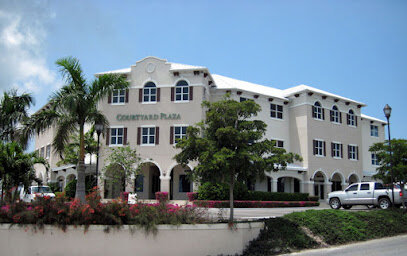Best Landlord & Tenant Lawyers in Turks and Caicos Islands
Share your needs with us, get contacted by law firms.
Free. Takes 2 min.
Free Guide to Hiring a Real Estate Lawyer
Or refine your search by selecting a city:
List of the best lawyers in Turks and Caicos Islands
About Landlord & Tenant Law in Turks and Caicos Islands
The Landlord and Tenant laws in the Turks and Caicos Islands govern the rental and lease of residential and commercial properties. These regulations are designed to protect the rights and responsibilities of both landlords and tenants, ensuring a fair and equitable relationship between both parties. While the relationship is largely governed by the lease agreement, specific laws and regulations come into play to address various issues, such as security deposits, rent control, repairs, and evictions.
Why You May Need a Lawyer
There are several common situations in which individuals may need legal assistance in Landlord & Tenant matters:
- Understanding or drafting a lease agreement, ensuring it complies with local laws.
- Handling disputes regarding repair obligations or property maintenance.
- Addressing issues related to rent payments and potential rent increases.
- Navigating the eviction process, whether you are a landlord or tenant.
- Recovering a security deposit or disputing deductions made by a landlord.
- Ensuring tenant rights are protected, particularly in cases of harassment or discrimination.
- Handling subleasing or assignment of lease matters.
- Understanding obligations under residential and commercial tenancies.
In these situations, a knowledgeable lawyer can provide guidance, ensure compliance with the law, and represent your interests effectively.
Local Laws Overview
The Turks and Caicos Islands have specific regulations that pertain to landlord and tenant relationships. Some key aspects include:
- Lease Agreements: The primary document that outlines the terms of the tenancy, including rent, duration, and responsibilities.
- Security Deposits: Regulations regarding how much can be charged, how it must be held, and the conditions under which it can be returned or withheld.
- Rental Increases: Guidelines for how and when rent can be increased, often requiring advance notice.
- Repairs and Maintenance: Both landlords and tenants have rights and responsibilities concerning the upkeep of the property.
- Eviction Process: Legal procedures landlords must follow to evict a tenant, typically requiring court involvement to ensure legality.
- Protecting Tenant Rights: Legal provisions that protect tenants from unfair practices, such as illegal evictions or failure to provide essential services.
Frequently Asked Questions
What should be included in a lease agreement?
A lease agreement should include terms such as the rental amount and payment schedule, duration of the lease, security deposit details, maintenance and repair responsibilities, and any specific rules or restrictions.
Can a landlord enter the rental property without notice?
Generally, landlords must provide notice before entering a property, except in emergencies. The specifics should be stated in the lease agreement as per the law.
How can a tenant deal with overdue repairs?
Tenants should formally request repairs in writing. If the issue is not resolved, they may need to seek legal advice or notify local housing authorities as stipulated by local laws.
What is the process for increasing rent?
Normally, landlords must provide written notice within a reasonable timeframe before increasing rent. The process and limitations should be outlined in the lease agreement and adhere to local laws.
What are the grounds for eviction?
Legal grounds for eviction typically include non-payment of rent, breach of lease terms, or illegal activities. A landlord must follow the legal process, which may involve court proceedings.
Can a tenant withhold rent for not getting repairs done?
Withholding rent is generally not advised without legal guidance. Tenants should seek alternative legal avenues if repairs are not made.
How can a security deposit be recovered?
Tenants should request a security deposit return in writing after vacating the property. Disputes may require legal assistance if the landlord withholds the deposit unfairly.
Are there specific discrimination protections for tenants?
The law protects tenants from discrimination based on race, color, religion, gender, and other protected characteristics under the local anti-discrimination statutes.
What steps should be taken if a lease is violated?
If a lease violation occurs, the other party should notify the violator in writing, specifying the breach and requesting rectification. Legal advice may be necessary if the issue persists.
Who is responsible for pest control during a tenancy?
The responsibility for pest control generally lies with the landlord unless the pest issue arose due to the tenant's actions or negligence. This should be outlined in the lease agreement.
Additional Resources
For individuals seeking more information or assistance, the following resources can be beneficial:
- Turks and Caicos Islands Government: Provides information on housing regulations and tenant rights.
- Legal Aid Clinic: Offers legal advice and assistance to those who qualify based on income.
- Local Real Estate Agencies: Can provide resources and information on standard rental practices.
Next Steps
If you find yourself needing legal assistance in Landlord & Tenant matters in the Turks and Caicos Islands, consider taking the following steps:
- Review your lease agreement and relevant documents thoroughly.
- Make notes of any issues or disputes, including dates and communications.
- Consult a qualified attorney specializing in property law to explore your options.
- Contact local housing authorities if you require further guidance or intervention.
- Consider mediation as a cost-effective means of resolving disputes when appropriate.
Seeking legal advice early can often prevent issues from escalating and provide clarity on your rights and obligations.
Lawzana helps you find the best lawyers and law firms in Turks and Caicos Islands through a curated and pre-screened list of qualified legal professionals. Our platform offers rankings and detailed profiles of attorneys and law firms, allowing you to compare based on practice areas, including Landlord & Tenant, experience, and client feedback.
Each profile includes a description of the firm's areas of practice, client reviews, team members and partners, year of establishment, spoken languages, office locations, contact information, social media presence, and any published articles or resources. Most firms on our platform speak English and are experienced in both local and international legal matters.
Get a quote from top-rated law firms in Turks and Caicos Islands — quickly, securely, and without unnecessary hassle.
Disclaimer:
The information provided on this page is for general informational purposes only and does not constitute legal advice. While we strive to ensure the accuracy and relevance of the content, legal information may change over time, and interpretations of the law can vary. You should always consult with a qualified legal professional for advice specific to your situation.
We disclaim all liability for actions taken or not taken based on the content of this page. If you believe any information is incorrect or outdated, please contact us, and we will review and update it where appropriate.
Browse landlord & tenant law firms by city in Turks and Caicos Islands
Refine your search by selecting a city.















